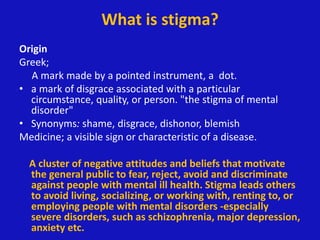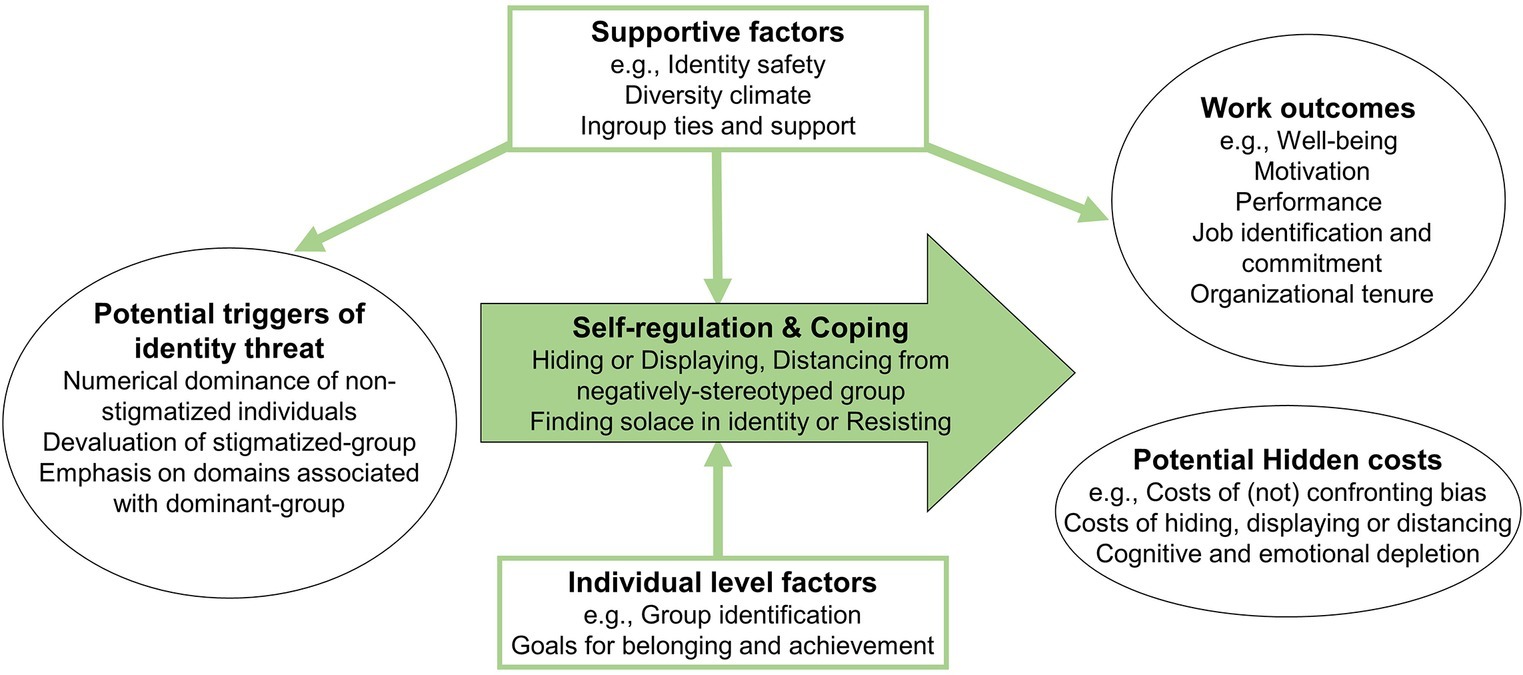Tired of hearing people say that therapy is only for the “crazy”? Or that depression is just a fancy term for being lazy? Well, buckle up buttercups, because we’re about to dive headfirst into the world of mental health awareness and challenge those stigmas one sassy remark at a time. So grab your favorite stress ball and get ready to laugh, snort, and maybe even shed a tear or two as we take on the misconceptions, stereotypes, and downright ridiculous beliefs that surround mental health. It’s time to embrace the crazy, break down those walls, and show the world that therapy is cool, depression is real, and self-care is more than just a spa day. Let’s start the conversation and kick stigma to the curb once and for all!
Understanding Mental Health Stigma
When it comes to mental health stigma, it’s hard not to roll your eyes at some of the ridiculous misconceptions out there. Let’s debunk some of these myths and shed some light on the truth behind mental health:
First off, no, mental health issues are not caused by a magical curse or bad karma. It’s not like someone sneezed on you and suddenly you’re diagnosed with anxiety. **Mental health disorders are complex conditions** that can be influenced by a variety of factors such as genetics, biology, and environment.
Contrary to popular belief, people with mental health issues are not all dangerous criminals waiting to snap at any moment. In fact, **individuals with mental health disorders are more likely to be the victims of violence, rather than the perpetrators**. So next time you see someone with anxiety, don’t worry, they’re not plotting your demise.
Lastly, let’s address the common misconception that seeking help for mental health is a sign of weakness. **In reality, asking for help takes a whole lot of courage and strength**. It’s like going to battle against your own mind, and that’s no easy feat. So kudos to all the warriors out there fighting the good fight!
The Impact of Stigma on Individuals
Stigma can have a massive impact on individuals, turning even the most confident person into a nervous wreck. Imagine walking into a room and feeling everyone’s judgmental stares burning a hole through your soul. It’s like being in a horror movie, except the monster is society’s perception of you.
Living with stigma is like carrying a giant anchor around your neck. It weighs you down, constantly reminding you that you don’t quite fit in. It’s like being the square peg in a world full of round holes. But hey, who needs to fit in when you can stand out, right?
Trying to navigate through life with stigma is like playing a never-ending game of dodgeball. You dodge hurtful comments, sidestep prejudice, and try not to get hit by the endless stream of ignorant remarks. It’s a full-contact sport, and you’re the underdog trying to win against all odds.
- Tip 1: Embrace your uniqueness. Who wants to be just another face in the crowd anyway?
- Tip 2: Surround yourself with people who lift you up, not bring you down. Life is too short for toxic influences.
- Tip 3: Remember that stigma says more about society than it does about you. Keep shining bright!

Breaking Down the Myths Surrounding Mental Illness
Let’s get one thing straight - mental illness is no joke. But there are so many myths out there that can make dealing with it even harder. So let’s break it down, myth by myth.
First up, the idea that mental illness is just a phase. **WRONG**. Mental illness is a serious health condition that can’t just be brushed off. It’s not a bad mood that will pass with time. It’s a real medical issue that requires proper treatment.
Next, the myth that people with mental illness are just lazy. **FALSE**. Mental illness can seriously impact a person’s ability to function in their daily life. It’s not about being lazy, it’s about struggling with something that many people can’t see.
And let’s not forget the myth that therapy is only for “crazy” people. **ABSOLUTELY NOT**. Therapy can be incredibly beneficial for anyone struggling with their mental health. It’s not about being crazy, it’s about getting the help you need to live a happier, healthier life.

Promoting Open Dialogue and Education
Let’s face it, sometimes having an open dialogue can be as awkward as trying to wear pants that are two sizes too small. But fear not, for we are here to help you navigate those treacherous waters!
Education is key, my friends, and not just the kind that involves sitting in a stuffy classroom listening to lectures about the migration patterns of butterflies. We’re talking about real-life, practical knowledge that can help you communicate effectively with everyone from your grandma to that one person who always seems to be lurking in the office break room.
So, grab your notebooks and pens (or, you know, your laptop because who even uses pens anymore?) and get ready to dive into the world of open dialogue and education!
- Remember, listening is just as important as speaking. No one likes a person who monopolizes the conversation like a hungry squirrel hoarding nuts for the winter.
- Don’t be afraid to ask questions – even the ones that might seem silly. After all, how else are you going to learn about the mating habits of the northern spotted owl?
And finally, always remember that it’s okay to disagree with someone – as long as you do it respectfully and with a dash of sass. The world would be a pretty boring place if we all agreed on everything, wouldn’t it?

Supporting Those Affected by Stigma through Advocacy and Empathy
Stigma is like that annoying relative who always shows up uninvited to family gatherings – you can’t seem to shake them off no matter how hard you try. But fear not, because we are here to help you navigate through the murky waters of stigma with our trusty compass of advocacy and empathy!
Advocacy is like the superhero cape you never knew you had – it swoops in to save the day when you least expect it. By advocating for those affected by stigma, we are essentially standing up to that bully who thinks they can push people around. Together, we can show stigma who’s boss and make sure everyone gets the respect and understanding they deserve.
Empathy is like a warm hug on a cold day – it wraps you up in a cozy blanket of understanding and makes you feel less alone. By showing empathy towards those affected by stigma, we are essentially extending a helping hand to lift them up when they are feeling down. Let’s all be emotional cheerleaders and spread kindness like confetti!
So, let’s band together like mismatched socks in a dryer and support those affected by stigma through the power of advocacy and empathy. Together, we can kick stigma to the curb and create a world where everyone feels accepted and valued. Let’s be the change we wish to see in the world – one compassionate act at a time!
Creating a Culture of Acceptance and Inclusivity
Here at our company, we pride ourselves on . We believe that everyone should be welcomed with open arms, no matter their background or beliefs. So, grab a seat, pull up a chair, and let’s dive into how we’re making our workplace a more welcoming and inclusive space for all.
First and foremost, we promote open communication and dialogue. We encourage our employees to speak up and share their thoughts, opinions, and ideas without fear of judgment or backlash. This open exchange of ideas helps us to foster a sense of belonging and understanding among our team members.
Another key aspect of our culture is celebrating diversity. We recognize that each person brings their own unique perspective and experiences to the table, and we value the contribution that diversity brings to our work environment. Whether it’s through cultural celebrations, team-building activities, or simply getting to know one another on a personal level, we strive to embrace and celebrate the differences that make us who we are.
Lastly, we are committed to creating a safe and supportive space for all individuals. We have zero tolerance for discrimination, harassment, or any form of exclusionary behavior. We believe in standing up for what is right and ensuring that every person feels valued, respected, and included. Together, we can build a workplace where everyone is accepted for who they are – quirks and all!
FAQs
What are some common misconceptions about mental health?
Oh, where do I even begin? One major misconception is that people with mental health issues are just “making it up” or “being dramatic.” Another is that therapy is only for “crazy” people. And let’s not forget the classic belief that mental health problems are a sign of weakness. Jeez, people can be so clueless sometimes, am I right?
How can we challenge the stigma surrounding mental health?
We can start by educating ourselves and others about mental health issues. It’s all about spreading awareness and breaking down those absurd stereotypes. We can also show compassion and empathy towards those struggling with mental health, instead of judging or shaming them. Oh, and let’s not forget to practice self-care and prioritize our own mental well-being too!
Why is it important to talk openly about mental health?
Well, it’s simple really. When we talk openly about mental health, we’re breaking down barriers and normalizing the conversation. It lets people know that it’s okay to not be okay, and that seeking help is nothing to be ashamed of. Plus, the more we talk, the more we learn and grow as individuals. So, let’s keep those conversations flowing like a river of healing and understanding!
How can individuals support loved ones dealing with mental health issues?
Step one: Listen. I mean, really listen. Step two: Be there for them, in whatever way they need. Step three: Encourage them to seek professional help if necessary. And last but not least, step four: Show them love, compassion, and understanding. Oh, and maybe bake them some cookies because who doesn’t love cookies, am I right?
—
Thanks for sticking with us!
We hope this article on mental health awareness has opened your eyes, challenged your perspective, and inspired you to join the fight against stigma. Remember, mental health is just as important as physical health – so let’s all work together to break down those barriers and start a conversation that truly matters. And hey, if all else fails, just remember: laughter is the best medicine (and we’ve sprinkled a little humor in here just for good measure). Take care, be kind to yourself, and always remember that you are never alone in this crazy journey we call life. See you on the other side!






